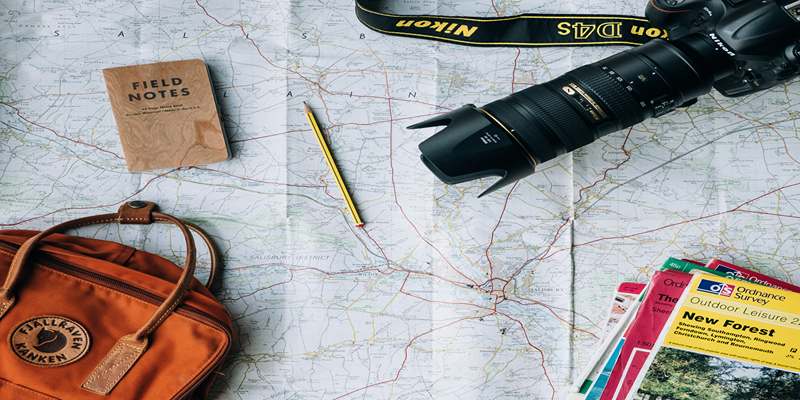Travel experiences can be amazing, but you should expect some risks along the way. Travelers often find it maddening when their trust in someone ends up being abused by a travel scammer. If you’re new to a place, whether busy or peaceful, scammers may try to trick you. Understanding these common scams will keep your important things safe and give you confidence. This booklet will tell you about popular travel scams and mention ways you can avoid them. If you inform yourself, you can take part in travel with more confidence and deeper understanding.

Transportation Scams to Watch For
Overcharging Taxi Drivers
Being charged too much by taxi drivers is a very common problem when traveling. In new cities, some drivers use tricks to raise the cost of the journey. A few drivers may grab payments and switch their bills. Make sure you find out standard taxi prices for your area before getting into a taxi. Where you can, use known ride apps or be sure to settle on a price for a metered ride before the car moves. If you document or photograph the taxi number, it keeps untruthful drivers in mind. It’s good to have some small bills so you can easily make change for your friends.
Fake Ride Services and Unlicensed Drivers
At airports and main train stations, scammers pretending to be from official ride services might cheat travelers. Being dealt with by such drivers means you could end up paying too much or facing serious risks. Certain phishing emails have swapped out the real company logo for a fake one. To protect yourself, don’t take a ride unless it is prearranged or gets your approval, and try to use just those taxis seen outside official taxi stands. If you use a rideshare app, please check the driver’s name, their license plate, and their profile picture. If something seems wrong or out of place, kiss the ride goodbye.
Bus Ticket Frauds and Travel Agents
In many countries, fake ticket vendors sell invalid or overpriced bus or train tickets to travelers. They often set up shop near legitimate stations to appear trustworthy. These vendors may also offer “VIP” upgrades or rush services that never materialize. Avoid scams like this by purchasing tickets from official counters or verified websites. If you’re unsure, ask hotel staff or tourism offices for assistance. Keep receipts and confirmation emails, and double-check departure times and gate numbers. Legitimate transport providers will always offer this information transparently.
Street-Level Tourist Scams
Distraction Pickpocket Techniques
A common tourist scam involves distraction tactics used to pick your pockets. Scammers may spill something on you, ask for help, or stage a commotion to shift your attention. While you're distracted, an accomplice will steal from your bag or pockets. This method is especially popular in crowded public areas like markets, metro stations, or tourist hotspots. To avoid scams like this, use anti-theft bags, keep zippers closed, and never place valuables in back pockets. Stay alert when approached unexpectedly, and create distance when your personal space is invaded.
Friendship and Bracelet Scams
In major cities and popular tourist spots, friendly strangers may approach with a gift like a bracelet, flower, or trinket. They tie it on you quickly, then demand payment. Sometimes they claim it's a cultural gesture or donation request. Refusing payment can lead to uncomfortable confrontation. To avoid such tourist scams, never accept unsolicited items. Be firm in your refusal and walk away confidently. These scammers rely on hesitation or guilt to trap travelers into paying. If someone insists on giving something for “free,” assume there’s a catch.

Impersonating Officials
Scammers may pretend to be police or customs officers, asking to see your passport, wallet, or credit cards. They accuse you of minor infractions or claim there's an issue with your documents. Once you hand over your items, they may steal your money or disappear. To avoid this scam, always ask for identification and avoid giving valuables to anyone on the street. In real cases, authorities will usually take you to a station or offer official documentation. When in doubt, remain calm and refuse to comply until proper identification is verified.
Accommodation and Booking Frauds
Fake Apartment Listings and Vacation Rentals
Online booking scams involve fake listings on rental platforms. Scammers steal photos of real properties or create entirely fake ones, asking for payment upfront. Once paid, the listing disappears, and there’s no place to stay. To avoid scams like this, only use trusted booking platforms with verified reviews. Avoid paying outside of the platform, and be wary of prices that seem too good to be true. Always check the host’s profile, cancellation policies, and contact information. Confirm availability directly with the platform if unsure.
Hotel Booking Tricks
Some travelers arrive at hotels only to be told their reservation is lost or overbooked—often a scam to redirect them to a more expensive place where the scammer gets a commission. In other cases, third-party booking sites may charge hidden fees or provide false information. To avoid this travel scam, confirm your reservation directly with the hotel before arrival. Save emails and receipts as proof. Book directly through the hotel or reputable websites. When possible, use hotels with 24/7 reception and clear customer service policies.
Room Damage or Theft Claims
Another scam involves hotels falsely accusing guests of property damage or stolen items after checkout, demanding payment or holding your passport hostage. In some countries, this scam targets foreign travelers who are unfamiliar with local processes. To avoid being blamed, document your room upon arrival and departure with photos. Report any preexisting damage to hotel staff right away. Keep a record of communication and request an itemized bill at checkout. If you face false claims, contact local tourism authorities or your embassy for support.
Conclusion
Traveling is one of life’s most enriching experiences, but it’s essential to be cautious and informed. Recognizing common tourist scams allows you to enjoy your adventures while minimizing risk. Whether you’re navigating transportation, booking accommodations, or walking city streets, staying aware helps protect your time, money, and peace of mind. Use this guide to avoid scams while you travel and prepare confidently for every journey. With these practical tips in mind, you can focus more on exploring the world and less on watching your back. Stay smart, stay safe, and travel wisely.












